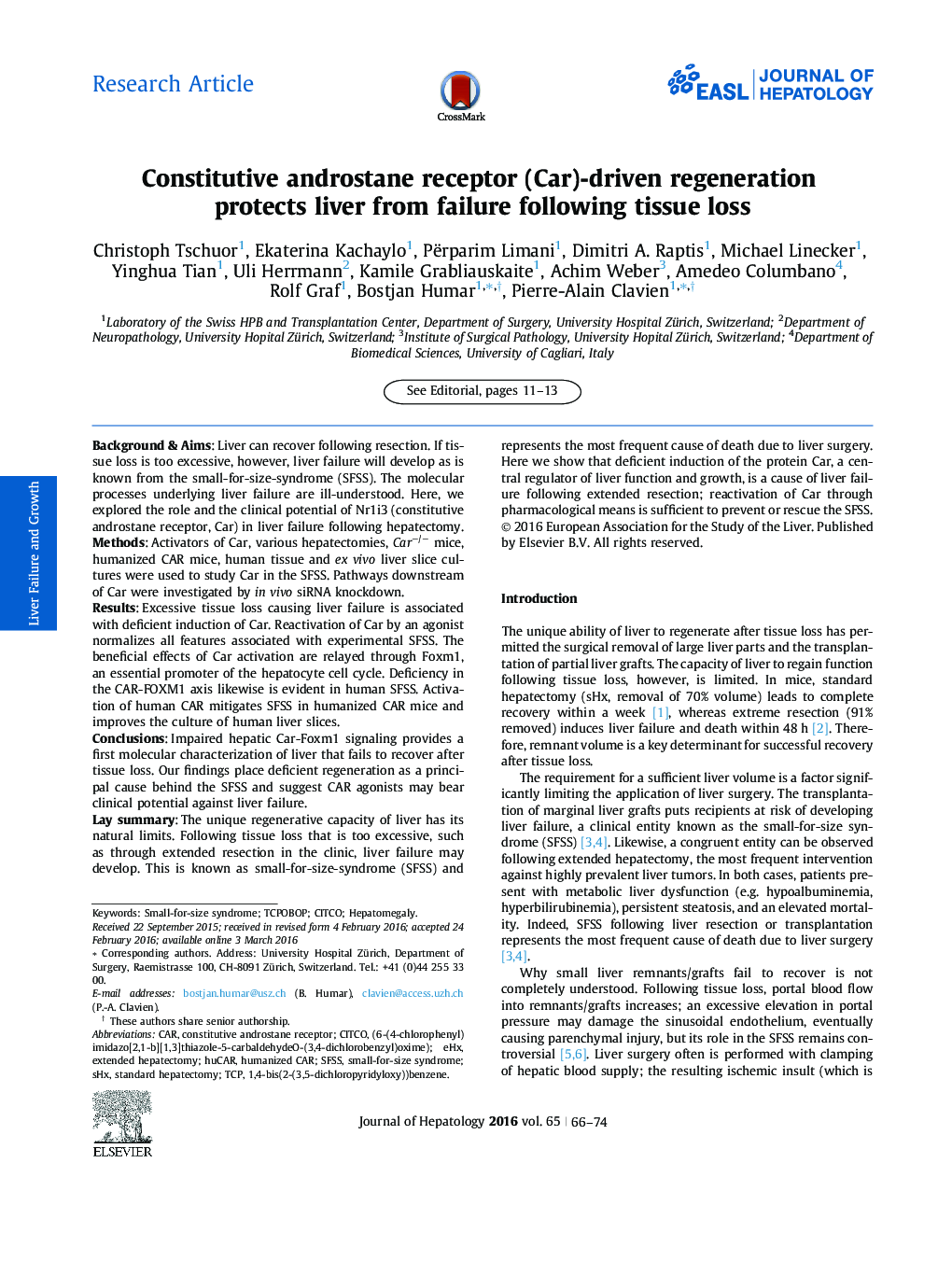| کد مقاله | کد نشریه | سال انتشار | مقاله انگلیسی | نسخه تمام متن |
|---|---|---|---|---|
| 6101239 | 1211101 | 2016 | 9 صفحه PDF | دانلود رایگان |
Background & AimsLiver can recover following resection. If tissue loss is too excessive, however, liver failure will develop as is known from the small-for-size-syndrome (SFSS). The molecular processes underlying liver failure are ill-understood. Here, we explored the role and the clinical potential of Nr1i3 (constitutive androstane receptor, Car) in liver failure following hepatectomy.MethodsActivators of Car, various hepatectomies, Carâ/â mice, humanized CAR mice, human tissue and ex vivo liver slice cultures were used to study Car in the SFSS. Pathways downstream of Car were investigated by in vivo siRNA knockdown.ResultsExcessive tissue loss causing liver failure is associated with deficient induction of Car. Reactivation of Car by an agonist normalizes all features associated with experimental SFSS. The beneficial effects of Car activation are relayed through Foxm1, an essential promoter of the hepatocyte cell cycle. Deficiency in the CAR-FOXM1 axis likewise is evident in human SFSS. Activation of human CAR mitigates SFSS in humanized CAR mice and improves the culture of human liver slices.ConclusionsImpaired hepatic Car-Foxm1 signaling provides a first molecular characterization of liver that fails to recover after tissue loss. Our findings place deficient regeneration as a principal cause behind the SFSS and suggest CAR agonists may bear clinical potential against liver failure.Lay summaryThe unique regenerative capacity of liver has its natural limits. Following tissue loss that is too excessive, such as through extended resection in the clinic, liver failure may develop. This is known as small-for-size-syndrome (SFSS) and represents the most frequent cause of death due to liver surgery. Here we show that deficient induction of the protein Car, a central regulator of liver function and growth, is a cause of liver failure following extended resection; reactivation of Car through pharmacological means is sufficient to prevent or rescue the SFSS.
188
Journal: Journal of Hepatology - Volume 65, Issue 1, July 2016, Pages 66-74
